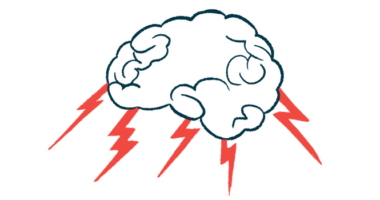Parkinson Canada Calls for Greater Support During Awareness Month

From left: Sean Smith, MD, executive director of Neuroscience Discovery, Merck; Gordon McCauley, president and CEO of CDRD, and Guy Rouleau, MD, Ddrector of the Montreal Neurological Institute and Hospital.
In light of Parkinson’s Awareness Month — starting April 1st — Parkinson Canada is calling for better awareness of the neurodegenerative disorder, while supporting organizations dedicated to helping those impacted by it.
This message is made more urgent by COVID-19, according to Parkinson Canada, which noted that the global pandemic has overshadowed many life-threatening illnesses, postponed treatments, and disrupted much-needed support.
Due to lockdown restrictions, the non-profit said those within the Parkinson’s community have faced further challenges, which may impact the health of affected individuals.
“The month of April is dedicated to bringing awareness to the disease while supporting organizations within the community that are committed to improving the lives of those impacted by this brain disorder,” the organization said in a press release.
Parkinson Canada — a non-profit organization that provides education and services to people with Parkinson’s disease, their families, and healthcare professionals — recently launched its newest campaign, called No Matter What. This campaign aims to inspire resilience and hope for Parkinson’s patients and their families, and to reinforce the organization’s commitment to support people with the disease.
It also seeks to encourage collaboration to develop effective therapies.
“Parkinson’s disease is on the rise globally, with Canada experiencing among the highest rates of prevalence with approximately 100,000 individuals diagnosed with Parkinson’s,” said Karen Lee, MD, Parkinson Canada president and CEO.
“Researchers have been calling Parkinson’s a ‘pandemic’ due to its growing prevalence around the world, with the impact of COVID-19 only accelerating this health issue,” Lee said.
For information on Parkinson Canada’s COVID-19 Action Plan and resources, click here.
Parkinson’s disease is caused by the loss of brain cells that produce dopamine — a chemical messenger that transmits signals from one nerve cell to another to control body movements. Dopamine deficiency leads to involuntary tremors, slowed movement called bradykinesia, stiffness, and impaired balance. It also can cause slurred speech, mood disorders, and sleep problems.
While most people living with the condition are older than 60, early onset Parkinson’s has been diagnosed at age 40 or younger. Moreover, Parkinson’s is difficult to detect, which often results in people going years before getting diagnosed.
In Canada, more than 25 people are diagnosed with Parkinson’s every day, a number that is expected to double by 2031, Parkinson Canada said.
Next to spinal cord injuries, Parkinson’s has the third-highest annual healthcare costs, and people with the disorder spend $1,100 CD (about $875) annually for medications, which is the second-highest amount.
Furthermore, COVID-19 has created additional challenges for patients, including backlogging the healthcare system. In some regions, Canadians face waiting times up to two years before seeing a specialist.
Parkinson Canada is a founding partner of the Canadian Open Parkinson Network (C-OPN), a platform for which researchers can connect, collaborate, and share findings to accelerate discoveries through a shared databank and biorepository.






